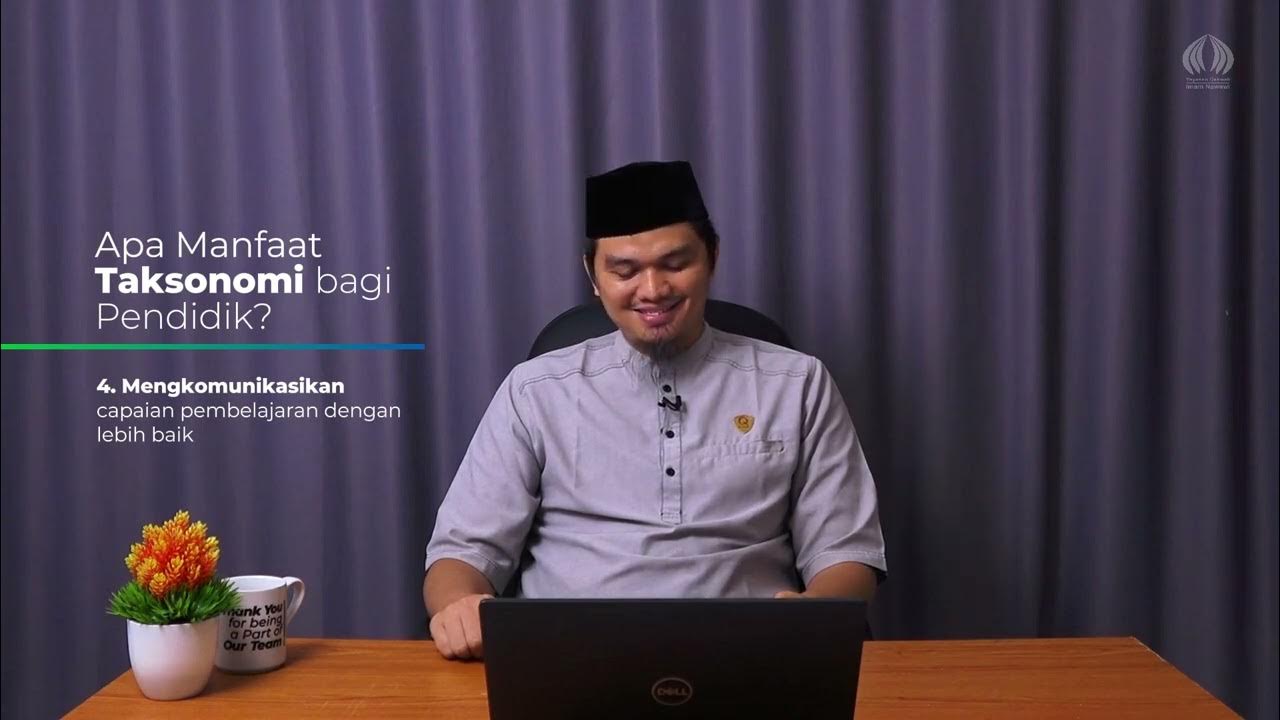Kelompok 1 : landasan antropo-filosofis pendidikan
Summary
TLDRThe transcript discusses anthropophilosophical education, focusing on the holistic development of students through cognitive, emotional, and motor aspects. It explores key philosophical principles such as the uniqueness of individuals, social interactions, and the importance of intellectual, cultural, and spiritual growth. The presentation also highlights several influential figures in education, including Paulo Freire, John Dewey, Maria Montessori, and Jean Piaget, each contributing to different educational methodologies. The key points emphasize the need for inclusive, relevant, and character-driven education to foster a meaningful learning environment for students.
Takeaways
- 😀 The theme of the presentation focuses on anthroposophical philosophy in education, emphasizing the nature of humans as rational and cultural beings.
- 😀 Education should promote holistic human development, integrating intellectual, spiritual, and emotional aspects.
- 😀 Humans should grow in environments that support character building and foster positive social relationships.
- 😀 Education must help develop individuals as both social beings and intellectual thinkers, enhancing their creativity and critical thinking skills.
- 😀 Culture plays a significant role in shaping a person's character and identity, and education must acknowledge this.
- 😀 Education should develop students' spiritual and moral awareness, helping them grow as morally conscious individuals.
- 😀 Education is a fundamental human need, vital for individual and collective development.
- 😀 Every human being is unique, and education should respect individual potential, talents, and interests, providing opportunities for their development.
- 😀 Education should foster collaboration, communication, and societal contributions, preparing students for positive social interaction.
- 😀 Critical thinking, creativity, and problem-solving should be integral to education, promoting cognitive skills that empower students.
- 😀 Key figures in the development of educational philosophy include Paulo Freire, John Dewey, Maria Montessori, Jean Piaget, and Lev Vygotsky, each contributing to the understanding of holistic, student-centered education.
Q & A
What is the main theme of the educational philosophy discussed in the script?
-The main theme is 'Anthroposophical Education,' which focuses on the nature of humans, emphasizing their intellectual and spiritual development, fostering growth in a supportive environment, and enhancing students' character and social relationships.
What does 'Anthroposophical Education' emphasize in terms of human development?
-'Anthroposophical Education' emphasizes the holistic development of human beings, integrating intellectual, spiritual, and social aspects to nurture the growth of students in an environment that promotes meaningful and enjoyable learning.
How does the script describe the role of culture in education?
-The script highlights that education must consider culture as a crucial aspect of shaping character and identity, helping students understand their cultural heritage and the values that define their communities.
What are the key aspects of human nature discussed in the script?
-The key aspects include humans as individuals with unique potentials, social beings who interact with others, rational beings who can think critically and creatively, cultural beings shaped by their traditions, and spiritual beings with moral and ethical awareness.
What are the principles of 'Anthroposophical Education'?
-The principles include recognizing the uniqueness of each individual, promoting social interaction and collaboration, developing cognitive abilities to think critically and creatively, fostering freedom of choice and responsibility, and emphasizing the importance of holistic student development.
How does 'Anthroposophical Education' implement holistic student development?
-It focuses on the development of the cognitive, affective, and psychomotor aspects of students, using curricula that help nurture the entire personality, engaging students in active, student-centered learning with an emphasis on character building.
Who is one key figure mentioned in the script, and what did they contribute to education?
-One key figure is Paulo Freire from Brazil, known for his concept of 'Pedagogy of Liberation,' which focuses on education as a tool to free individuals from oppression and injustice, emphasizing dialogue and student participation in the learning process.
How does John Dewey's educational philosophy differ from others mentioned in the script?
-John Dewey's philosophy emphasizes experiential learning, where students engage directly with activities to develop critical thinking and problem-solving skills. His approach encourages active learning through experience, in contrast to more traditional methods.
What role does the environment play in Montessori's educational philosophy?
-In Montessori's educational philosophy, the environment plays a key role by being structured and designed to promote the natural development and independence of children. The environment encourages autonomy and self-directed learning.
How does the script describe the role of spiritual and moral awareness in education?
-The script asserts that education should cultivate students' spiritual and moral awareness, helping them to develop a high sense of responsibility, ethical behavior, and a strong sense of identity rooted in spiritual and moral values.
Outlines

This section is available to paid users only. Please upgrade to access this part.
Upgrade NowMindmap

This section is available to paid users only. Please upgrade to access this part.
Upgrade NowKeywords

This section is available to paid users only. Please upgrade to access this part.
Upgrade NowHighlights

This section is available to paid users only. Please upgrade to access this part.
Upgrade NowTranscripts

This section is available to paid users only. Please upgrade to access this part.
Upgrade NowBrowse More Related Video

Introduction of Physical Education

Landasan Psikologis Pendidikan || Universitas Pendidikan Indonesia

Pendidikan dan Pelatihan AMC 9 Sesi 1

IKS Lecture 6 Ancient Indian GURUKUL SYSTEM Part 1

Pembelajaran Mendalam (DEEP LEARNING): Mindful, Meaningful, dan Joyful Learning.

Video studi kasus - Pemikiran pendidikan -1
5.0 / 5 (0 votes)